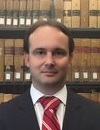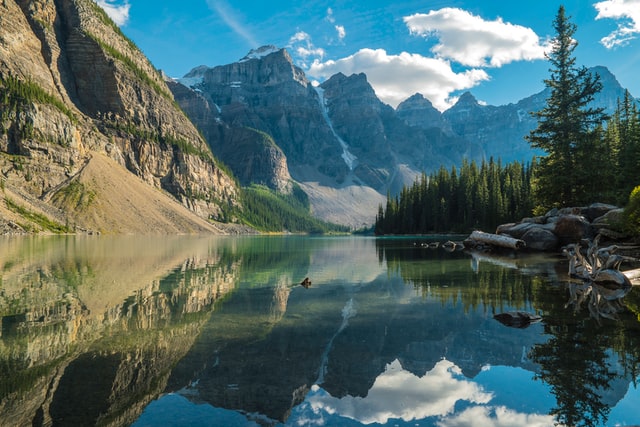 Gabriel Wedy
Gabriel Wedy
Visiting Scholar, Brazilian Judge, and Law Professor at ESMAFE/RS*
The approval of 17 goals and 169 targets for sustainable development by the United Nations Conference on Post-2015 Development Agenda is unquestionably an advance for humanity. Economic development alone is unsatisfactory: it must be paired with human development, respect for the environment and sound governance.
It is paramount to take sustainable development seriously nowadays. The planet suffers from overpopulation and unplanned over-exploitation of scarce and non-renewable resources as anticipated by the ecologist Garrett Hardin in his elegant essay “The Tragedy of the Commons” in 1968. There are now over 7.2 billion people on earth, nine times more people than the 800 million back in the start of the Industrial Revolution in 1750. Every year more than 75 million human beings are born. By 2040, the world population will be between 8 and 9 billion people, fighting for limited natural resources and space.
The annual gross world product (GWP) is currently US$ 90 trillion. The world economy has been growing rapidly from 3% to 4% every year, albeit unequally in what regard the distribution of wealth within countries and among nations.
Within this economic and social context falls the environmental crisis that humanity has been facing, caused by the increasing vulnerability and extinction of biodiversity and the harmful effects of climate change largely due to human action. Between 1750 and 2014, carbon dioxide emissions increased from 280 parts per million to 400 parts per million. Methane increased from 700 parts per billion to around 1,800 parts per billion; and nitrous oxide increased from 280 parts per billion to 327 parts per billion. Global warming causes impacts and harm to human health, infrastructure, drinking water reservoirs, ecosystems and oceans.
Brazil is a clear picture of this global unsustainability. Although it is the ninth largest economy in the world in terms of Gross Domestic Product (GDP), it occupies the 79th position in the global ranking of human development and it is in the 60th position in the world ranking of education. It is 71st in gender equality. According to the world poverty ranking measured by the Gini index, Brazil is the 17th most unequal country in the G-20 and the 14th poorest country in the world. Lastly, Brazil occupies the 77th position in the world ranking of general sustainability and the 115th position in the category of forest protection, according to the Environmental Performance Index of Yale University in 2014.
The country has presented a pledge to the UN to slash its greenhouse emissions by 43% by 2030, which is commendable but difficult to achieve. There is a lack of capacity to monitor all of the vast Amazon forest, which is needed to help avoid its rampant deforestation. Public and private means of transportation use fossil fuels. Wind and solar power plants are still not very significant. There is no planning for the creation of a sustainable infrastructure in public and private works. We don’t have a consistent program for energy conservation and efficiency. The government has no system to monitor emissions. Furthermore, Brazil is far from implementing a system such as a carbon tax or cap and trade to reduce emissions of greenhouse gases.
There are also serious problems affecting governance. Recently, two large corruption schemes have erupted: the case called “Mensalão,” in which bribes were paid to politicians to finance election campaigns, and the “Operation Car Wash,” which brought to light the diversion of large sums of public money from the state-owned oil company “Petrobrás”. In 2013, thousands of Brazilians took to the streets to protest against the politicians and the lack of sound public policies. More recently, people went to the streets demanding the impeachment of President Rousseff.
Poor public policies and corruption itself are evidently not news: they are afflictions that have haunted the country from the time Brazil was a colony of the Portuguese empire.
In this scenario of unsustainable development, how have the Brazilian courts been resolving their cases?
Through their decisions, judges have guaranteed Brazilian citizens important rights, which are stated in the progressive Constitution of 1988, drawn up after 20 years of military dictatorship. The citizen’s rights to medical treatment, medicine, surgery, housing and access to education are frequently guaranteed by judicial decisions.
The environment is also protected by our Constitution. Article 225 provides that “…everyone has the right to an ecologically balanced environment, which is an asset of common use of the people and essential to a healthy quality of life, imposing on the Public Power and the community the duty to defend it and preserve it for the present and future generations”. Recent precedents have shown that judges have taken this right seriously. The Judicial Branch, by applying the precautionary principle, has prevented a great deal of environmental damage as well as the deforestation of the Brazilian Amazon rainforest. Several decisions prevent construction projects and the emission of substances that pollute water and soil and threaten the animals, plants or human health. When it comes to legal proceedings, the burden of proof is reversed so that the entrepreneur must prove that his activity will not cause pollution or damage to the environment. In the environmental liability cases, there is no need to prove the fault of the polluter; only damage and causation need be proved.
Regarding governance, in “Mensalão” several politicians and executives were sentenced by the Judiciary and convicted of criminal practices. In “Operation Car Wash” politicians and contractors were arrested on suspicion of corruption crimes and will soon be judged.
All in all, according to the principle of Separation of Powers coined by Montesquieu in his classic work “De l’esprit des lois”, the judge should only be “la bouche de la loi” (the mouth of the law). However, in Brazil the Judicial Branch is exercising judicial activism to promote the environmental, social, economic, and, in particular, governance aspects of sustainable development.
* Gabriel Wedy is a Federal Judge in Brazil, an Environmental Law Professor at ESMAFE/RS (the Brazilian Federal Judiciary Superior School), and an invited Environmental Law Professor at AJURIS (the Judiciary Superior School for the State of Rio Grande do Sol) and Unisinos University. He is also a Ph.D. candidate at Pontifícia Universidade Católica do Rio Grande do Sul (PUC/RS) and a Visiting Scholar at Columbia Law School. He can be reached at gtwedy@gmail.com.
A PDF of his paper is available here.



